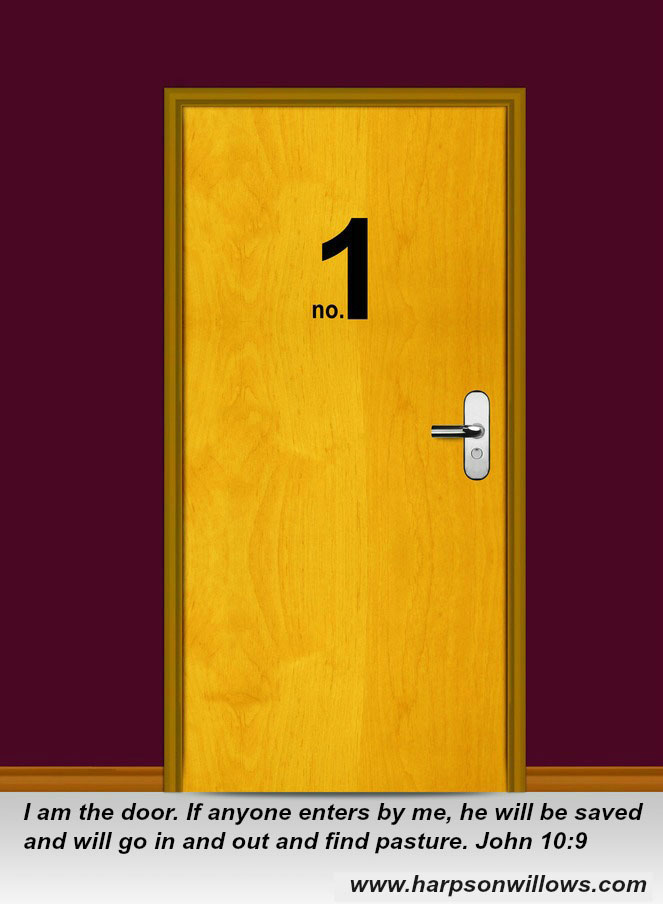I remember the days of old. I ponder all your great works and think about what you have done. 6 I lift my hands to you in prayer. I thirst for you as parched land thirsts for rain. Selah Psalm 143:5-6
The defense mechanism of denial buffers the pain of Monday’s “return to work.” By Tuesday, the reality of the situation rears its ugly head again. To oppose this beast the defense tactic of anger is rallied, providing a temporary sense of power over the struggle with the Tuesday question “Why?”
And then on Wednesday, like something from a horror film, the job monster springs to life again. Feelings of helplessness and vulnerability set in. Our reaction is to regain control by bargaining with the situation. Or more likely, bargaining with God.
In Psalm 143:5-6 David’s words feature a favorite bargaining technique—replaying the past. David thinks back on all that God has done, on how good life has been, and how good it could be now if not for this horrible situation.
David’s growing distress and alienation give an inside look—and feel—to the heart and mind of a suffering human being. His need for God and for his redemption deepen as David’s despair intensifies. David. The one biblical figure that God called “a man after My Own heart.” A man who experienced such degrees of God’s favor and blessings, the likes of which anyone would hope to experience one tiny bit. But even this great king, God put on hold sometimes.
In his gloom, David appears to put a deal on the table—God, look at all I’m doing here—I’m praying, I’m meditating on Your mighty works, and I’ve opened myself up like parched ground to the rain. So God, I need You to do something—show me some evidence that You care.
Can you resonate with David here? As Tuesday anger wanes, my bargaining begins with the relentless “Why?” “If I knew why, then I would know the meaning behind this suffering, and then I could endure it with courage.” But the problem is I don’t know “why.” And moreover, God is not telling me “why.”
This leads to me attempting to answer it myself, to answer for God, to make an excuse for God’s silence—because otherwise I can’t bear the hurt. “It must be because God wants to teach me some lesson through suffering.”
But the severity of the trial prevents any kind of reflection or learning since all physical, mental, emotional, and spiritual strength is used to endure it and get through it. And like David, I must bring it into my relationship with God. Everything is caught in a child’s encounter with the Father. It makes it easier, but sometimes it makes it harder.
Struggling with the “why” inevitably leads to struggling with the “why God permits it.”
In our life with God, we may try to bargain with God. But in the end, there is always only 1 door to choose.
In bargaining with God for rescue from a soul-crushing job situation, we may look for a deal to strike, some truce, something that can be done, something that could have been done differently, some prayer to pray, some promise to make. Wheelers and dealers vacillate between believing there is something that can be done to change things and realizing there isn’t.
When the “if only…” deals don’t work out, failure, blame, and guilt set in—heavy weights for an already wearisome soul. But perhaps this is exactly where God wants us—realizing there is no deal to be made.
Consider David’s example of extraordinary faith. In the depths of his distress, he thought about God’s grace, His past mercies, and mighty works. He did not vacillate between believing he could change things and realizing that he couldn’t. He dismissed all other hopes, and focused his sole dependence on God.
The great king’s despair prompted him to stretch out his hands to God in prayer. Not in some dutiful endurance of religious suffering, but as a parched land thirsts for rain, so his soul longed for evidence of God’s care. Isn’t that what we all want in the trials of life? Tangible evidence. Relief. A light at the end of the tunnel. Knowing that God has our back.
When the struggle of hump day comes around, don’t focus on the job monster. Skip the Wednesday bargaining and try David’s method—recall God’s grace, His past mercies, His mighty works, and Scripture’s witness that He desires to bless His people—in other words, remember all the evidence that He has already given. See if this doesn’t prompt you to focus solely on God, opening yourself to His blessings from heaven.
He is the only source of living water for a parched soul. Jesus said “whoever drinks of the water that I will give him will never be thirsty again. The water that I will give him will become in him a spring of water welling up to eternal life” (John 4:14).
Jesus, it’s hard to make it through the week sometimes, actually a lot of the times. I am grateful that you know my struggle. Please, please show me evidence of your care. And help me not to miss it whatever it may be. In Your Name, Amen.


